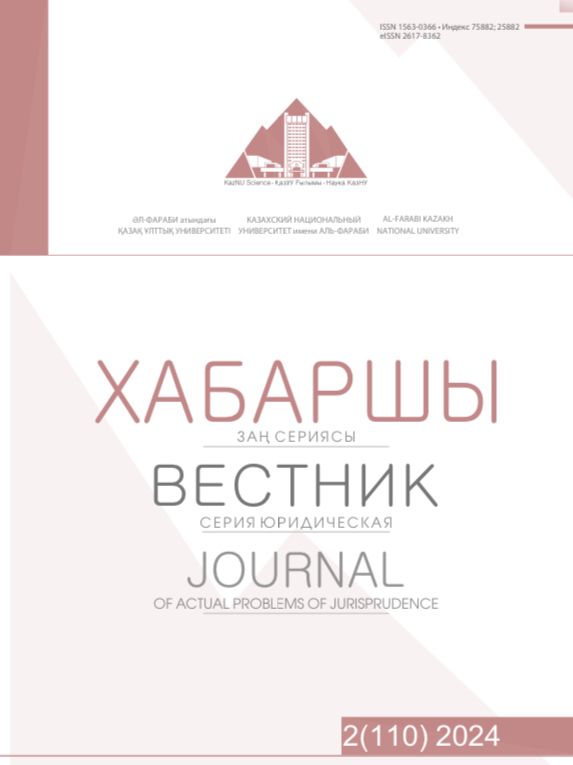LEGAL REGULATION OF DIGITAL TECHNOLOGIES IN SUPPORT OF PEOPLE WITH DISABILITIES: INTERNATIONAL EXPERIENCE
DOI:
https://doi.org/10.26577/JAPJ2024-110-b-015Abstract
The relevance of the issue under study is that in the modern world there are significant changes in quality standards, subjects and forms of provision of social services, which, on the one hand, are due to the intensification of public-private partnership processes, and on the other – digitalization processes in the field of public administration and main sectors of the social sphere. The need to support diverse populations underlines the importance of processing large volumes of data, where modern digital technologies play a key role in speeding up and improving the quality of services provided.
The purpose of this scientific research is to analyze the global experience of legal regulation of the use of digital technologies in supporting persons with disabilities (the countries of the European Union, the USA and the Asian region).
The study led to the conclusion that it is necessary to apply global experience in legal regulation of the use of digital technologies in supporting persons with disabilities in the Republic of Kazakhstan.
The scientific article was prepared as part of the grant project “Kazakh society in the context of digital transformation: prospects and risks”, funded by the Science Committee of the Ministry of Science and Higher Education of the Republic of Kazakhstan (grant no. BR21882302).
Key words: person with disabilities, digital technologies, inclusive society, people with disabilities, digitalization of public services, assistive technologies, robotics













